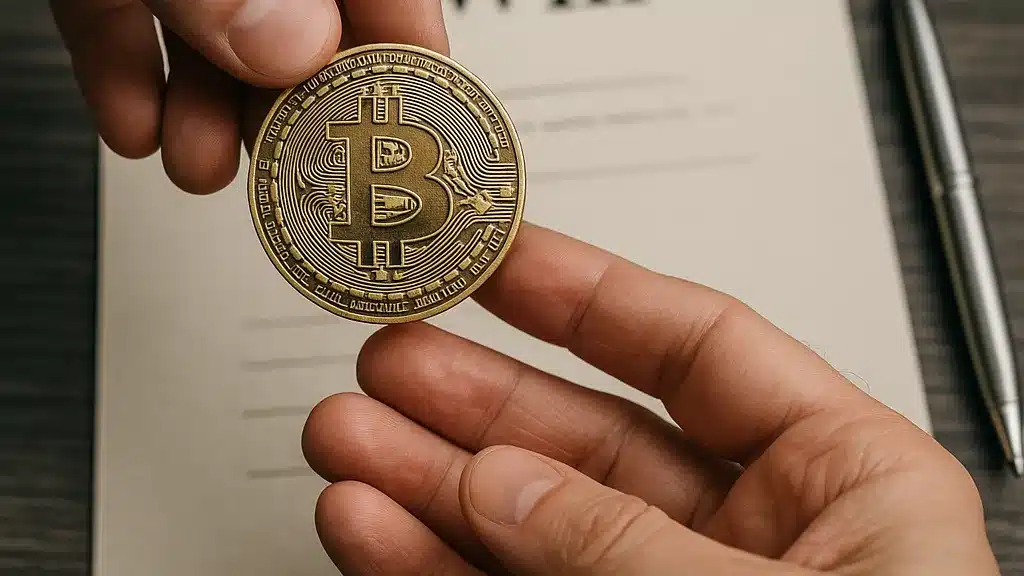When a loved one dies, family members often scramble to locate bank accounts, passwords, and wills. But in the age of cryptocurrency, a more pressing question looms: What happens to your Bitcoin when you die?


A recent discussion on Reddit’s r/Buttcoin community has gone viral for asking this exact question—and the answers are raising eyebrows. As Bitcoin adoption grows, so too does the risk that billions in digital assets could be lost forever due to poor planning.
The Harsh Reality: If No One Has Your Keys, Your Bitcoin Is Gone
The cornerstone of crypto ownership is simple: not your keys, not your coins.
That means if no one knows the private key to your wallet—or how to access your exchange account—your Bitcoin may be unrecoverable.
According to Chainalysis, an estimated 20% of all Bitcoin is already considered lost—a portion of which likely belongs to deceased holders who never passed on credentials.
“You die, and if no one knows how to get into your wallet, congratulations, your family gets nothing,” one Redditor wrote. “It’s like burying your gold in the woods and forgetting to leave a map.”
Why Traditional Wills Don’t Cover Crypto
Digital assets are notoriously difficult to pass on through conventional estate planning. A standard will may list “cryptocurrency” or even a specific wallet address, but it often fails to include:
- Access credentials (e.g., seed phrases, 2FA devices)
- Instructions on where and how to retrieve the assets
- Trustworthy custodians or legal frameworks
Without detailed instructions or technical know-how, heirs may be left staring at a cold wallet with no way in.
How to Secure Your Bitcoin for the Next Generation
Here are practical steps every crypto holder should consider to ensure their digital wealth doesn’t vanish upon death:
1. Use a Hardware Wallet with Clear Backup
Store your Bitcoin in a secure hardware wallet (like Ledger or Trezor), and back it up with a 12- or 24-word seed phrase stored securely in a physical location.
2. Write a Crypto-Specific Will
Traditional wills should be augmented with crypto-specific instructions. Include:
- Type and location of crypto wallets
- Access credentials
- Step-by-step access instructions for non-tech-savvy heirs
3. Designate a Trusted Executor or Custodian
Name someone who understands crypto—or use a legal firm that specializes in digital asset estate planning.
4. Use a Multisig Wallet for Added Control
Multisignature (multisig) wallets allow multiple parties (like you and a lawyer or family member) to access funds. This prevents a single point of failure.
5. Secure Your Seed Phrase Offsite
Never store your seed phrase in the cloud or on an unsecured device. Use:
- Safety deposit boxes
- Metal seed backups (fire- and flood-proof)
- Secure storage providers with inheritance options
The Legal Gray Area
In the U.S., digital assets are recognized under the Revised Uniform Fiduciary Access to Digital Assets Act (RUFADAA), but each state interprets it differently. Consult an estate attorney familiar with cryptocurrency and digital inheritance laws.
What Reddit Says: Cautionary Tales and Dark Humor
The r/Buttcoin thread is filled with cynical humor—and hard truths. One user joked:
“The best way to ensure your family never finds your Bitcoin is to leave it on Mt. Gox.”
Others highlighted real fears:
“I have no plan. If I get hit by a bus tomorrow, my coins die with me.”
This is not a niche problem. As more Americans invest in Bitcoin for long-term savings or retirement, inheritance planning is becoming a crypto priority.
Bottom Line
If you own Bitcoin and haven’t made a plan, you’re gambling with your legacy. Without access instructions, your family may lose everything.
Secure your assets today—because your Bitcoin can’t haunt you from the grave, but it can disappear forever.




